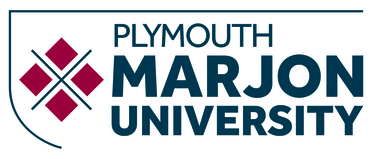Rulers of consciousness: the university and the Pedagogic Device
Hugo, Wayne and Bertram, Carol (2009) Rulers of consciousness: the university and the Pedagogic Device. Critical and Reflective Practice in Education, 1 (1). ISSN 2040-4735
|
Text
Rulers of consciousness the university and the Pedagogic Device.pdf - Published Version Download (571kB) | Preview |
Abstract
Over the last five years we have been engaged with a highly theorized research project in South African curriculum reform that created an abstract holding space where very different communities, interest groups and specialist players engaged in the process of curriculum reform were placed together. Theoretical and empirical research within the esoteric space of university practice constructed a playing field where all the major contributors to curriculum reform, ranging from those involved in conceptualization to those directly working on implementation, could come together under an overarching conceptual educational form called the Pedagogic Device. It was a curious space – the different strata worked with various and sometimes conflicting logics, each concentrating on fulfilling their own mandate, often not lifting their heads to see what those above and below them were doing. Using the Pedagogic Device as an orienting tool we were able to walk through the post apartheid educational terrain, interviewing and gathering data at the different levels, tracking how complex knowledge forms produced in the most esoteric of spaces slowly transformed into morsels learners at school could digest. Each level engaged in this transformation had its own peculiar freedoms and constraints, opening out possibilities for challenge, even transmutation. The metamorphosis we were tracing held enormous power. Any group in control of the whole device would have a ruler of consciousness determining the ideas entering children’s minds, packaging, structuring, measuring, and testing its impact. Such overarching control was not evident in our study, each level had enough freedom to work their own logics, resulting in a curious and distinctly unsatisfactory hybrid within the final sanctum of the classroom. The study set in motion a set of critical debates and engagements within the university, forcing us as teacher educators to engage with what we were doing at a university level within a context of poverty in post apartheid South Africa. It also set in motion key engagements with national and provincial governmental structures over what interventions are needed to improve the quality of education within the province we are located in – KwaZulu-Natal (KZN), South Africa.
| Item Type: | Article |
|---|---|
| Keywords: | pedagogic device, field of production, official recontextualizing field, pedagogic recontextualizing field, history, reproduction of inequality, university, South Africa |
| Depositing User: | Ms Raisa Burton |
| Date Deposited: | 21 Jul 2020 15:38 |
| Last Modified: | 21 Jul 2020 15:38 |
| URI: | https://marjon.repository.guildhe.ac.uk/id/eprint/17580 |
Actions (login required)
 |
Edit Item |

